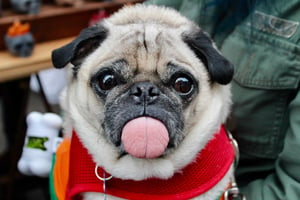Puppy biting can be a common problem for new dog owners. Fortunately, there are many methods that...
How to Correct Biting in Puppies
Biting is a natural behaviour for puppies, but it is important to teach them to control their bite. This article will explain the most effective methods for correcting biting in puppies, from teaching bite inhibition to providing a safe environment for them to explore. Read on to learn how to stop your puppy from biting and ensure that they are safe, happy and well-behaved.
Why Do Puppies Bite?
Biting is a natural behaviour for puppies, as it helps them to explore the world around them. Puppies use their mouths to learn about the texture, taste and smell of different objects, as well as to play and interact with other puppies and people. It is important to remember that biting is normal behaviour for puppies and should not be discouraged.
It is, however, important to teach puppies to control their bite so that they do not hurt other people or animals. It is also important to teach puppies that biting is not an acceptable behaviour. Teaching puppies bite inhibition is the first step to correcting biting in puppies.
Teaching Bite Inhibition
Bite inhibition is the process of teaching puppies to control the force of their bite. This is done by teaching puppies that biting too hard will result in an immediate reaction from the person or animal being bitten. When puppies bite too hard, it is important to respond immediately by making a loud noise or withdrawing from the situation. This teaches puppies that biting too hard is not acceptable behaviour.
It is also important to reward puppies when they bite gently. When puppies bite gently, it is important to give them a treat or praise them. This teaches puppies that gentle biting is acceptable behaviour.
Providing a Safe Environment
In addition to teaching bite inhibition, it is important to provide puppies with a safe environment to explore. This means providing puppies with plenty of safe toys and objects to explore. It also means providing puppies with plenty of supervision and guidance when playing and interacting with other puppies and people.
It is also important to provide puppies with plenty of exercise and mental stimulation. This helps to keep puppies from getting bored, which can lead to biting. Taking puppies for walks and playing games with them can help to keep them mentally and physically stimulated.
Using Positive Reinforcement
In addition to providing puppies with a safe environment to explore, it is important to use positive reinforcement when correcting biting in puppies. This means rewarding puppies when they display appropriate behaviour, such as when they play gently or when they do not bite. Giving puppies treats or praise when they display appropriate behaviour is a great way to reinforce the desired behaviour.
It is also important to avoid punishing puppies when they bite. Punishment can make puppies fearful or anxious, which can lead to more biting. It is important to focus on rewarding puppies when they display appropriate behaviour.
Ignoring Unwanted Behaviour
It is also important to ignore unwanted behaviour, such as biting. Ignoring unwanted behaviour is a great way to teach puppies that it is not acceptable. When puppies bite, it is important to remove them from the situation and ignore them until they calm down. This teaches puppies that biting is not acceptable behaviour.
Conclusion
Biting is a natural behaviour for puppies, but it is important to teach them to control their bite. The most effective methods for correcting biting in puppies include teaching bite inhibition, providing a safe environment for them to explore and using positive reinforcement. It is also important to ignore unwanted behaviour, such as biting. By following these tips, you can help your puppy learn to control their bite and ensure that they are safe, happy and well-behaved.



